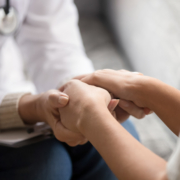Do’s and Don’ts After Your Loved One Returns from Addiction Treatment
Seeing a loved one return from addiction treatment can be an emotional experience. Many friends and family members justifiably want to do all they can to support their loved ones during their time of need. Despite these good intentions, caution is needed as the wrong type of support can significantly harm an individual’s addiction recovery, erasing months of substantial progress and increasing the likelihood of a relapse.
If you have a loved one coming home from their substance addiction treatment, you must be mindful of the impact of your actions and be aware of what to do — and don’t do — during this period.
Do: Encourage New Hobbies
Old habits are difficult to break, even after extensive addiction treatment. Upon returning from treatment, your loved one can quickly revert to their previous destructive lifestyle because of the free time now available to them. Helping them find new interests can prevent this from occurring, as it can keep their mind occupied and away from cravings and pessimistic thoughts. Exploring new hobbies will also take up much of their time, leaving little room for substance use.
Don’t: Consume Substances Around Them
You and others around your loved one must avoid drinking or using any substances when in their presence. Seeing those closest to them consume drugs or alcohol can signal to your loved one that this is acceptable behavior and can tempt them into relapse. Instead, try promoting positive behavior and habits to set a good example for your loved one that they can follow to maintain their sobriety.
Do: Support Ongoing Care
Addiction is a lifelong battle that doesn’t end even after your loved one comes home from a rehab center. Encourage any efforts by your loved one to pursue additional addiction treatment, so they can continue getting the help they need to stay on track with their recovery. Many rehab facilities like Twin Town Treatment Centers offer aftercare sessions for those who complete their initial addiction treatment to ensure long-term sobriety and a life without dependency.
Don’t: Make Them Feel Excluded
The period after returning home from addiction treatment is a crucial time for your loved one, and they’ll need all the support they can get. While there are many ways to provide support, it’s vital that your loved one feels welcome and wanted by those closest to them, as this can help maintain their positive frame of mind.
Transitioning back to everyday life is already a challenging process that can be made even more difficult if your loved one starts to feel lonely and left out because of their past behaviors. Work to include your loved one in as many social activities as possible to let them know that you appreciate them and recognize all their progress.
Addiction is always present; fully recovering from it will take time and continued support from professionals and loved ones. Get the right help and support by contacting Twin Town Treatment Centers and visiting one of our five drug addiction treatment centers throughout Orange County and the Los Angeles metropolitan area. We accompany patients through every step of their addiction recovery journey, providing support through personalized resources like our intensive outpatient treatment (IOP) programs and drug addiction treatments that have proven effective in facilitating healing and development. Get in touch today by calling us at (866) 594-8844 or filling out our online form to get started. Our team of drug addiction treatment professionals will provide you with a no-cost interview and assessment for alcohol and drug issues.











